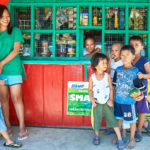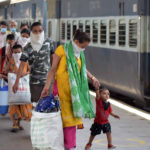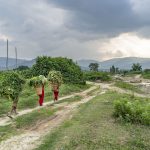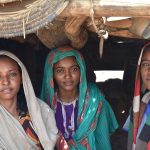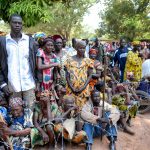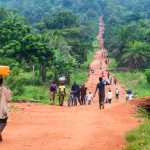Depression is the leading cause of disability worldwide, with a lifetime prevalence of 15-20% and a higher prevalence among the poor. Depression symptoms include anhedonia, impaired attention, and fatigue. People with depression and their families also face pervasive stigma and discrimination, particularly in India and other LMICs. Impacts are felt through the household by requiring…
Migration
Remittances and Coping with COVID‐19
The study seeks to support the Philippine COVID‐19 response by quantifying the role of international migrant remittances in helping households cope with the pandemic’s economic consequences. Remittances are known to provide important support for migrant‐origin households experiencing negative shocks. Little is known about whether migrants who are themselves experiencing negative shocks are able to provide…
Migration, Changing Residence Patterns, and Covid-19 in India
Informal insurance through family members and temporary migration are among the most important ways that individuals in low-income countries mitigate economic shocks. Covid-19 makes these traditional means of informal insurance socially costly. Temporary or permanent migrants respond to the negative economic shock of the pandemic by returning home to co-reside with family members and risk…
Seasonal Migration and Agricultural Labour Markets in Nepal
In rural agrarian economies, the period between planting and harvest is often a “lean season” when labor demand and wages fall, and the price of staples rise. The landless poor reliant on agricultural work on others’ farms are especially hard hit, and many millions of laborers and their families worldwide suffer from seasonal hunger. This…
Advancing Data Capacity for Policy Innovation in Sudan
The objective of the Sudan Labor Market Panel Survey (SLMPS) 2019 is to facilitate better understandings of labor market dynamics and outcomes in Sudan. Our goal with the SLMPS 2019 is to collect high-quality and reliable data sufficient for indepth, multi-dimensional analyses of economic and labor market issues in Sudan. The need for high quality…
Labour Migration and Structural Change in Rural Labour Markets
The project consists of two parts. Transitions out of agriculture and into other sectors of the economy are a necessary part of economic development. In Africa, some of the traditional routes out of agriculture- through the domestic industrial revolution, a “green revolution” in the agricultural sector, or trade reforms that stimulate industrial growth- have not…
The Labour Market Impacts of Forced Migration
Millions of people around the world have been forced to abandon their homes due to conflict, as either international refugees or internally displaced persons. Forced migration produces significant economic impacts. These impacts involve multiple factors, but one key element of these impacts is labour markets. Labour markets have important implications for long-term development after an…
How do Labour Markets Equilibrate?
Migrants have long been thought to play a central role in helping an economy to make efficient use of its resources. That migration acts as a force of arbitrage– that it takes place, that it encourages equilibrium, and that it leads to an efficient allocation of resources – is one of the central tenets of…
Promoting Migrant Remittances using Mobile Banking
Recent research has shown that migrant remittances are extremely important sources of funding for developing countries, as they are generally large in magnitude and stable in times of macroeconomic volatility. But there is still much to be learned about remittance flows in this context, both in terms of their determinants and consequences. This research project…

